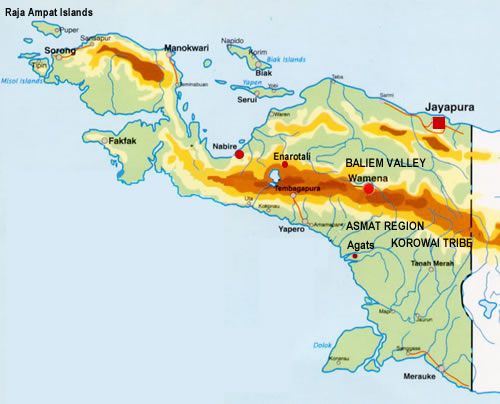Formation of New Papuan Community Aspirations
Author Maria Wenda | Editor
Finally, Papua has officially added 3 new provinces, namely Central Papua Province, South Papua, and Central Highlands Papua. The formation of the 3 New Autonomous Regions (DOB) is purely the desire of the Papuan people so that people’s welfare can increase.
June 30, 2022 is a historic day for all Papuans because the three new provinces on Earth of Cendrawasih have been officially established. The people are happy that their wishes have been granted by the government, because they have felt the need for a new province for a long time. If there is a new province, then there will be equitable development and improvement of the people’s standard of living.
When the 3 provinces have been formed, the people are the happiest because their wishes have been granted by the government. In 2019, representatives of Papuan community leaders had an audience with President Jokowi at the State Palace to ask for regional expansion. Then the wish was granted in 2022 after going through a long process.
Papuans are grateful that there is a new province and are also patient with the process. They realized that 2020 was the beginning of the pandemic, so the plan to add new autonomous regions was delayed, because the government was focused on dealing with Corona. After that, the administrative process and other requirements will be carried out, as well as the grouping of cities and regencies which will join the new province, and then the province will be inaugurated.
When there is an expansion of territory, it is a request from the indigenous Papuan people. The Coordinating Minister for Political, Legal and Security Affairs, Mahfud MD, stated that the majority (82%) of the Papuan people approved the formation of the new autonomous regions.
Mahfud added that the government granted the expansion of the Papua region because it was based on priorities. The three new provinces are also regulated based on their customary territory, so it is not arbitrary. If it is regulated in such a way, it will fulfill the people’s demands and make it easier to regulate it, because the customary and ethnic areas are the same. When the arrangements are easy, government programs will be successful and the people will prosper.
The division of provinces based on customary territories is also a request from the Papuan people. They do come from different tribes. Especially for Papua, the rights of indigenous peoples are respected, so it is natural that the division of customary areas is arranged in such a way, to minimize conflict.
In addition, the community asked for regional expansion to the central government because Papua’s territory is too large (more than 300 KM2). If there are only 2 provinces, it will be too far when residents have a need to go to the provincial capital. However, if there are 5 provinces then they are not too far away when it comes to taking care of important papers or other needs to the provincial capital.
Community leader from Mimika Regency, Yohanes Kemong agreed to the expansion of the region, even according to him this is an agenda that has been postponed since 2003. He agreed to 3 new autonomous regions because it would accelerate development to remote areas. The hope is that when there is a new province, infrastructure development will be carried out to districts far from the provincial capital. This development is for the welfare of the people.
In a sense, in 2003 the first regional division occurred, namely the formation of the Province of West Papua. After that, it seems that community leaders still want additional provinces. When their request was granted by the government of President Jokowi, they felt relieved because their mission was completed.
Papuans ranging from ordinary people to prominent figures approved the addition of new autonomous regions, and more agreed than disagreed. The evidence is that there is a lot of support for regional expansion, ranging from alliances of Papuan students studying in Jakarta, community and traditional leaders, to religious leaders in Papua.
Many people agree with the expansion of the region because they believe this program will advance their lives. Once the infrastructure is built, it will facilitate mobility and accelerate the wheels of the economy. That way, there will be a positive domino effect, namely the welfare of the people.
When there are demonstrations against regional expansion, it is certain that they are not purely people’s aspirations. In fact, it is suspected that someone is playing behind it, because at this time the demonstration is a business event, aka there are people who want to be paid demonstrators.
Demonstrations against the new autonomous regions are also vulnerable to being ridden by the Papuan Separatist and Terrorist Groups (KST). They have always wanted to be independent and when there is an expansion of territory, they will be used as material for demonstrations. It is as if this program is only beneficial for the central government, even though the benefits are for indigenous Papuans.
The people of Papua need to be wary when there is propaganda that invites demonstrations against the division of territory. They should not be influenced and then demonstrate without knowing what the benefits will be.
)* The author is a Papuan student living in Jakarta
